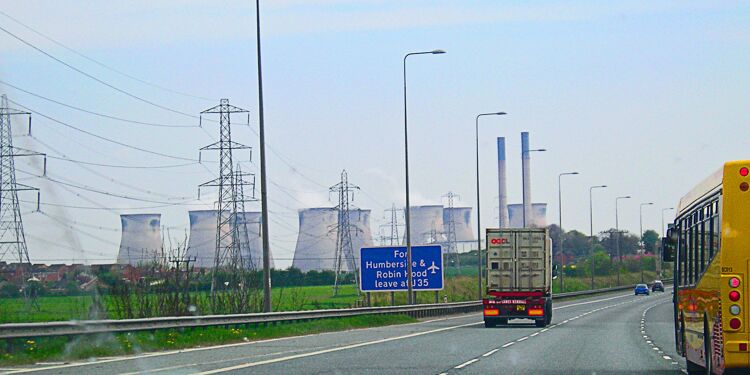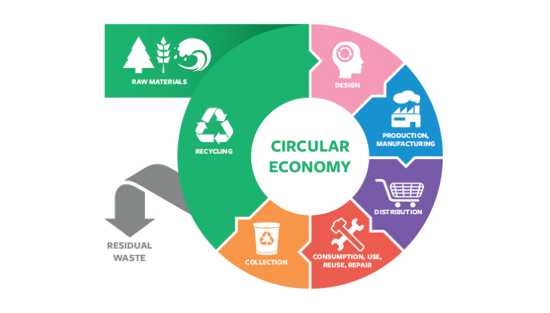How can air pollution impact the economy and individual businesses

Clare Taylor shares how the impacts of poor air quality can actually become a direct business concern and costly. Clare discusses how air pollution can considerably impact the econom and individual businesses.
As a business, you have clear legal obligations to manage chemicals and ensure your staff are not endangered by what they breathe, and there are laws to control atmospheric emissions. Beyond that, however, the health impacts of poor air quality may not at first appear to be a direct business concern. Actually, it can be a cost to business.
Air pollution has considerable impacts on the economy and on individual businesses: for businesses, lost working days from sickness; for the economy, increased costs of healthcare and of social services to support those incapacitated by illnesses caused by pollution. There are also business impacts from reduced life expectancy, including the loss of the knowledge and experience of senior staff who die prematurely. There can be costs when workers’ performance levels suffer because of poor health, even when they are able to come into work. Related diseases are not just respiratory diseases, such as asthma, chronic pulmonary obstruction disease (COPD) and lung cancer, but also heart disease, stroke, diabetes and dementia. Air pollution also causes transitory symptoms for many, such as eye irritation, watery eyes and noses when levels are high, and exacerbates allergies such as hay fever: mostly just causing misery, but potentially dangerous when driving or operating machinery.
The numbers are higher than many realise: air pollution is one of the leading risk factors globally for death. In Europe, where air quality has steadily been improving over the past twenty years, there were still 253,000 premature deaths in 2021 attributed to exposure to fine particulates and 52,000 from nitrogen dioxide levels, in each case levels above the World Health Organization recommendations.
It's become common practice in many parts of the world to publish regular air quality ratings, with warnings for particularly high pollution levels.
It’s not just a city problem, not just what comes out of vehicle tailpipes or industry chimneys. Living in a rural area may reduce harm from traffic pollution, but there is still considerable pollution from wood and coal burning, industrial plants and agriculture.
Agriculture is a major contributor of ammonia and methane emissions, as well as particulates. There are many elements to air pollution, but particulates – tiny particles that can get deep into the lungs and cross into the blood stream - are the main contributor to poor health and are linked to 7 million deaths per year globally. They are mainly caused by combustion. Even within cities, though, key pollution sources may not be what one would expect: in London, for example, with all its traffic, the rise in the use of wood-burning stoves over the past decade means that they contributed 17% of PM2.5 emissions (particulates with a diameter of 2.5 µm) in 2019, undermining much of the benefits of the Ultra Low Emission Zone. Non-combustion elements of particulate matter include road dust (brake and tyres), and microplastics.
Wildfire smoke has damaged health in many parts of the world, the increase in fires undoing much of the progress made in reducing air pollution levels. Australia has suffered devastating bush fires, increasing with climate change. In North America, wildfires have also been a particular concern over recent years. And other countries, too, including those where previously they were virtually unknown. They are set to increase as the impacts from climate change grow. Work is being carried out by affected governments to measure and mitigate health impacts from wildfire smoke, in addition to more general air quality programmes.
However, the main pollution source overall is still energy - the energy sector producing it, within industry and commerce, and in our homes - with manufacturing, mining and road transport also major contributors. Businesses can make a difference in reducing it.
Much of what we need to do to mitigate climate change will help – energy efficiency, reducing unnecessary travel, using public transport where feasible rather than driving. Even with electric vehicles powered by clean energy rather than combustion engines, there is inevitable pollution from brakes and tyres. Keeping a tight rein on emissions from inks and other chemicals, either by substitution or by good management practices helps cut air pollution as well as improve health and safety. Good boiler maintenance is very important for cleaner air; as electricity production becomes cleaner, moving towards electric power will be of increasing benefit for air quality as well as climate change.
As well as controlling direct emissions – those you create within your business activities – understanding indirect emissions offers scope to manage and reduce those as well. Again, it is very similar to managing climate impacts – goods and services you buy will be contributing to air pollution to a greater or lesser extent.
So, too, what you do at home – how you heat your home, how you cook, what chemicals you use, how often you open windows, what’s in your furnishings and carpets. This article has mainly been about outdoor air pollution, but indoor air pollution is a rising health concern as it becomes better understood.
Topics
Recent news

Kodak's 2024 Sustainability Report: A Commitment to a Greener Future
Kodak's 2024 Sustainability Report, "One World, One Kodak," demonstrates a strong commitment to environmental and social responsibility. The report highlights impressive reductions in greenhouse gas emissions (56%) and water withdrawal (31%) and aims for zero waste by 2025. Notably, Kodak is pioneering double materiality assessment in the printing industry, aligning sustainability with financial reporting, and showcasing its products' environmental benefits.

How can printers lower costs on energy usage?
Clare Taylor outlines simple steps for businesses to achieve energy sustainability, focusing on cost savings and staff comfort. It emphasises starting with measuring energy consumption to identify key areas for improvement. Subsequent steps involve managing energy use through behavioral changes and low-cost interventions, like optimizing cooling settings and ensuring equipment is switched off when not needed.

The European Union's circular economy plan
Printing companies must understand the EU's Circular Economy Action Plan (CEAP), part of the European Green Deal. These initiatives drive sustainability, impacting businesses globally, even if not EU-based, through customer requirements. Printers need to be aware of reporting and sustainability expectations to manage risks and retain clients.

A revised look at sustainability in wide format print
Sustainability is crucial for wide-format print, moving beyond marketing to an imperative driven by brands and regulations. Common "eco" claims often mask complexities; true sustainability demands carbon reduction as a core principle. Life Cycle Assessment (LCA) offers data-driven insights for genuine environmental improvement, as demonstrated by UFABRIK's transparent approach.